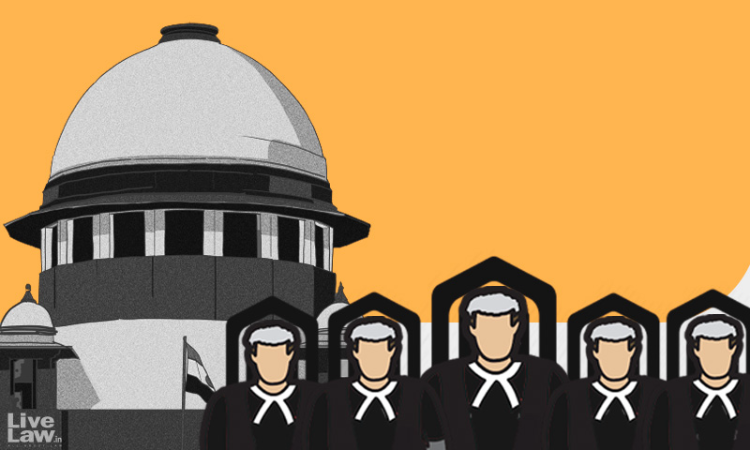Lack Of Substance Marks The Ongoing Tussle Between The Executive And The Judiciary
V.Venkatesan
12 Jan 2023 10:16 AM IST

The ongoing turf battle between the Union Government and the Supreme Court’s Collegium is getting curiouser and curiouser. What initially appeared to be a contest for primacy over judicial appointments is now turning out to be an open display of discord between the Constitutional functionaries.
While there should be no frequent public exhibition of bonhomie between the members of the Government and the Judiciary to ensure the independence of the latter, an exchange of barbs, as reported in the media, between the senior members of the Executive and the Judiciary, serves no purpose, and will only end up creating more noise than issues of substance in the public discourse.
The Vice President, Jagdeep Dhankar’s fresh criticism against the judiciary, as reported by Livelaw on Wednesday, not only borders on diatribe, but is likely to embarrass the office of the Attorney General for India, R.Venkataramani, who has been requested by the Supreme Court’s three-Judge bench hearing the judges appointments case, to mediate and restore decency and decorum in public statements by members of the Executive.
In a sense, the Supreme Court’s earlier disapproval of what Dhankar and the Law Minister, Kiren Rijiju had publicly criticised the Collegium system was occasioned by pragmatic considerations. It is not as if the Supreme Court itself is not conscious about the flaws in the Collegium system - its opaqueness, and inability to ensure social and gender diversity in the selection of judges are just two examples.
It is because of this appreciation of the widely-shared criticism of the Collegium’s functioning, the Supreme Court laid down specific guidelines in 2015, while striking down the NJAC Act, and directed the Government to replace the existing Memorandum of Procedure (MoP) with a new one, in consultation with the Collegium.
But that reform of the Collegium couldn’t see the light of the day, thanks to non-compliance with the Supreme Court’s order by the Government. Therefore, for the members of the Government to continue to blame the Collegium for its ills, while not using the opportunity to reform it, will only expose its hypocrisy.
But the Court had expressed its disapproval of the statements from the Executive during the hearing of the case concerning inordinate delay in judges’ appointments, caused by the Executive’s intransigence over accepting the recommendations and reiterations from the Collegium.
The members of the Executive are well aware of the convention that when a case is sub-judice, the parties to the dispute do not make public statements which have a bearing on the case. It is the breaking of this convention which the Supreme Court was concerned with while hearing the case. Therefore, describing the judges’ plea for lowering the rhetoric as public posturing from judicial platforms - as the Vice President had done on Wednesday in Jaipur - may not help to defuse the controversy.
The Vice President’s and the Law Minister’s public disapproval of the Supreme Court’s 2015 NJAC verdict, especially after the beginning of the two-year tenure of the current Chief Justice of India, Justice D.Y.Chandrachud in November last year, makes one suspect the timing. If the Government is unhappy about the 2015 verdict, nothing prevents the Government from reenacting the same law with necessary changes to ensure the primacy of the CJI in the appointment process.
But to continue to voice criticism about the NJAC verdict in public forums, without taking corresponding steps to secure legal and judicial remedies to undo it, will only underline the speakers’ immaturity, and refusal to face the reality.
On Wednesday, the Vice-President has also referred to his dissatisfaction with the basic structure doctrine, enunciated by the Supreme Court in the Kesavananda Bharati case in 1973. Justice Sanjay Kishan Kaul, as a presiding Judge of the bench hearing the ongoing judges appointment case, had voiced his concern in the last hearing that the government may declare that the doctrine is no longer part of the Constitution - if the public statements against the judiciary by members of the Government are unchecked.
There have been serious academic debates about the relevance and soundness of the basic structure doctrine, and many scholars have questioned the doctrine, which emerged out of 7:6 majority, fifty years ago. There is no doubt that the Vice President is within his rights to question the doctrine, and dispute about its relevance today. But it is the timing and the context of the Vice President’s criticism of the basic structure doctrine which could turn its erstwhile critics its admirers and even serious defenders.
This is especially so, when the Vice President has questioned the NJAC verdict, on the ground that the Supreme Court could not have negated the unanimous decision of Parliament and majority of state legislatures, as the same goes against the principle of parliamentary sovereignty. An essential feature of Indian democracy is the counter-majoritarian character of the Supreme Court, whose Judges have taken pledges to uphold the ideals of the Constitution.
The NJAC verdict can be criticised for its poor reasoning, especially its attempt to equate the primacy of the CJI with the independence of the judiciary, or its defence of the Collegium without persuasive reasons and whether at all it was necessary to strike down the NJAC on this ground, instead of using the option to tweak it. But no scholarly criticism of the NJAC verdict can endorse what the Vice President has said - that it is flawed because it went against the will of our lawmakers.


